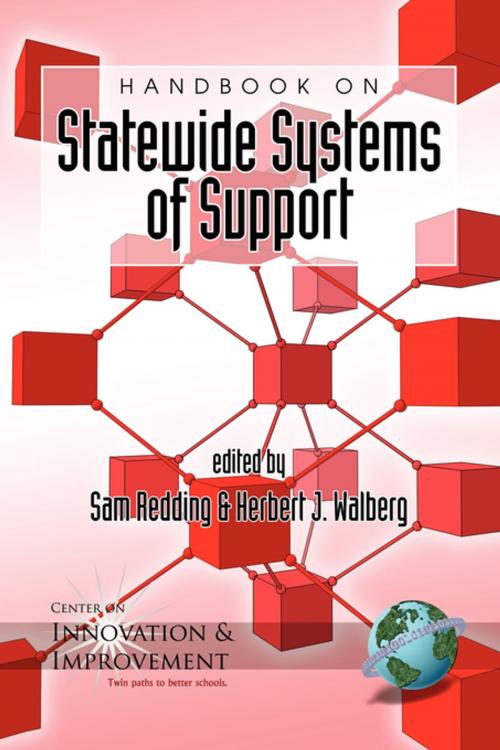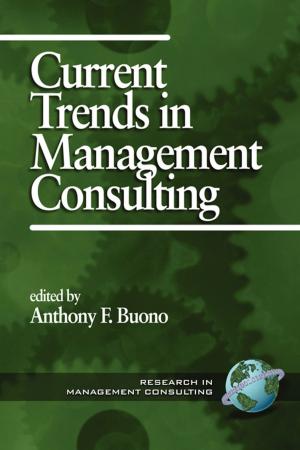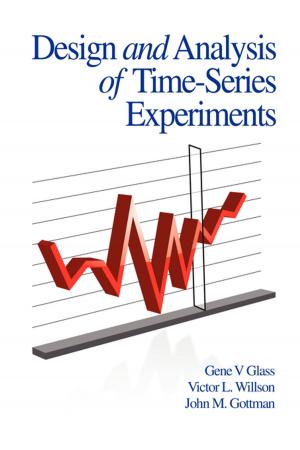Handbook on Statewide Systems of Support
Nonfiction, Reference & Language, Education & Teaching, Higher Education, Administration| Author: | ISBN: | 9781607526155 | |
| Publisher: | Information Age Publishing | Publication: | February 1, 2008 |
| Imprint: | Information Age Publishing | Language: | English |
| Author: | |
| ISBN: | 9781607526155 |
| Publisher: | Information Age Publishing |
| Publication: | February 1, 2008 |
| Imprint: | Information Age Publishing |
| Language: | English |
(published in cooperation with The Center on Innovation & Improvement) As subsequent chapters point out, the No Child Left Behind Act (NCLB) requires states to provide assistance to districts in improving the schools within their purview. Of course, the U.S. Constitution and federal laws leave the control of education largely to the states, and states have long provided support to school districts. In return for federal monies, however, NCLB requires states to provide such help under the statewide systems of support (SSOS) provision of the Act. The purposes of this Handbook are to survey the research related to statewide systems of support, to present the experience and insights of educational leaders in how such support can best be conducted, and to derive actionable principles for improving schools. It is intended for use not only by the staff of the U.S. Department of Educationsponsored Regional Centers that serve state department staff but also by the staff of school districts and schools. Also sponsored by the U.S. Department of Education, the Center on Innovation & Improvement (CII) previously developed the Handbook on Restructuring and Substantial School Improvement (Walberg, 2007) that became the basis of CII’s technical assistance to Regional Centers on this topic. CII made available for downloading Power Point presentations and webbased seminars (“webinars”) based on the previous Handbook. CII’s intended audiences widely employed the previous Handbook on Restructuring and Substantial School Improvement and auxiliary materials and found them useful in their technical assistance efforts to disseminate and encourage evidencebased ideas for restructuring and improving schools. With advice from the U.S. Department of Education, scholarly experts, and experienced educators in the Regional Centers, state departments of education, and school districts, the CII staff concluded that what it envisioned as the present Handbook would be similarly useful.
(published in cooperation with The Center on Innovation & Improvement) As subsequent chapters point out, the No Child Left Behind Act (NCLB) requires states to provide assistance to districts in improving the schools within their purview. Of course, the U.S. Constitution and federal laws leave the control of education largely to the states, and states have long provided support to school districts. In return for federal monies, however, NCLB requires states to provide such help under the statewide systems of support (SSOS) provision of the Act. The purposes of this Handbook are to survey the research related to statewide systems of support, to present the experience and insights of educational leaders in how such support can best be conducted, and to derive actionable principles for improving schools. It is intended for use not only by the staff of the U.S. Department of Educationsponsored Regional Centers that serve state department staff but also by the staff of school districts and schools. Also sponsored by the U.S. Department of Education, the Center on Innovation & Improvement (CII) previously developed the Handbook on Restructuring and Substantial School Improvement (Walberg, 2007) that became the basis of CII’s technical assistance to Regional Centers on this topic. CII made available for downloading Power Point presentations and webbased seminars (“webinars”) based on the previous Handbook. CII’s intended audiences widely employed the previous Handbook on Restructuring and Substantial School Improvement and auxiliary materials and found them useful in their technical assistance efforts to disseminate and encourage evidencebased ideas for restructuring and improving schools. With advice from the U.S. Department of Education, scholarly experts, and experienced educators in the Regional Centers, state departments of education, and school districts, the CII staff concluded that what it envisioned as the present Handbook would be similarly useful.















